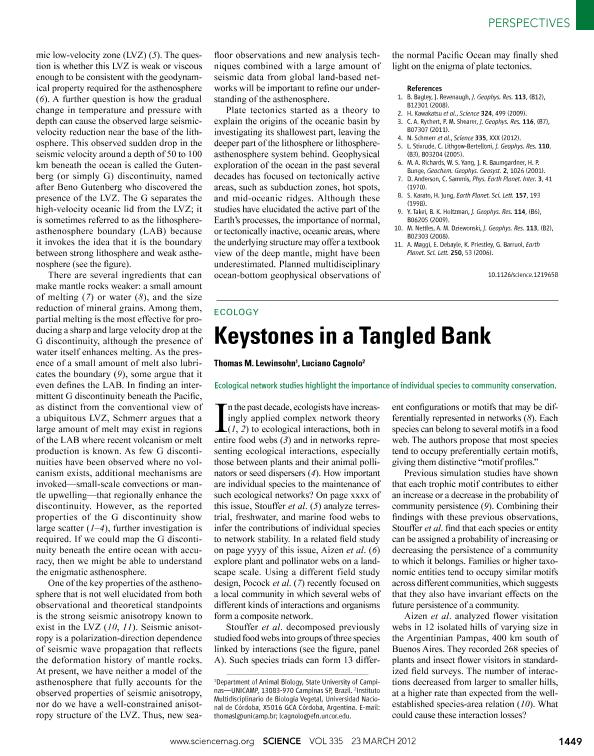Artículo
Keystones in a Tangled Bank: Ecological network studies highlight the importance of individual species to community conservation
Fecha de publicación:
03/2012
Editorial:
American Association For The Advancement Of Science
Revista:
Science
ISSN:
0036-8075
Idioma:
Inglés
Tipo de recurso:
Artículo publicado
Clasificación temática:
Resumen
In the past decade, ecologists have increasingly applied complex network theory (1, 2) to ecological interactions, both in entire food webs (3) and in networks representing ecological interactions, especially those between plants and their animal pollinators or seed dispersers (4). How important are individual species to the maintenance of such ecological networks? On page 1489 of this issue, Stouffer et al. (5) analyze terrestrial, freshwater, and marine food webs to infer the contributions of individual species to network stability. In a related field study on page 1486 of this issue, Aizen et al. (6) explore plant and pollinator webs on a landscape scale. Using a different field study design, Pocock et al. (7) recently focused on a local community in which several webs of different kinds of interactions and organisms form a composite network.
Palabras clave:
Interaction Networks
,
Food Webs
,
Nestedness
,
Modularity
Archivos asociados
Licencia
Identificadores
Colecciones
Articulos(IMBIV)
Articulos de INST.MULTIDISCIPL.DE BIOLOGIA VEGETAL (P)
Articulos de INST.MULTIDISCIPL.DE BIOLOGIA VEGETAL (P)
Citación
Lewinsohn, Thomas; Cagnolo, Luciano; Keystones in a Tangled Bank: Ecological network studies highlight the importance of individual species to community conservation; American Association For The Advancement Of Science; Science; 335; 6675; 3-2012; 1449-1451
Compartir
Altmétricas




